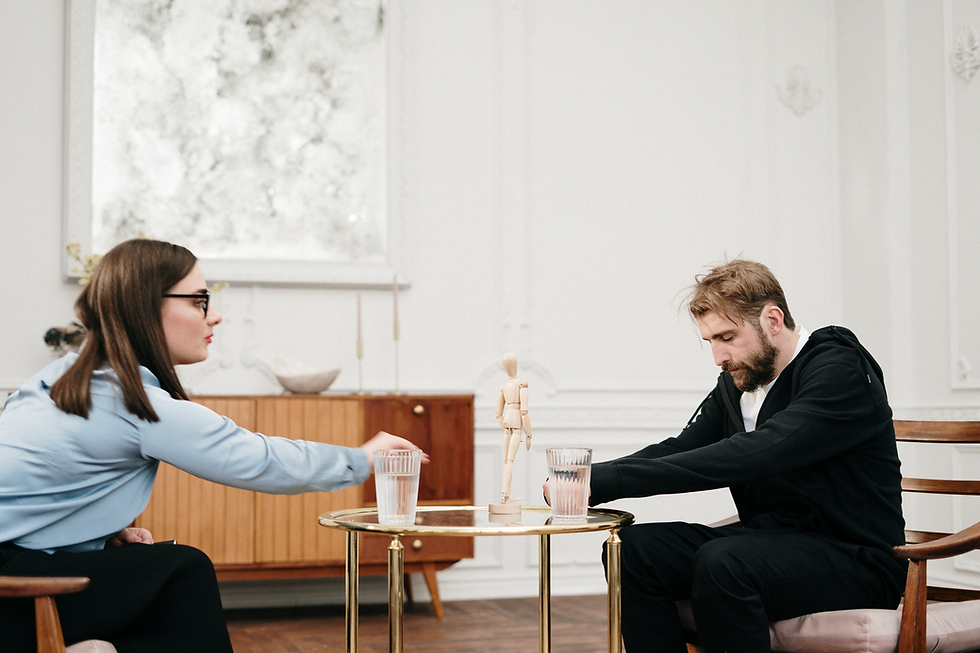Photoshop in Everyday Life: What is Real?
- Amira Mirza

- Oct 1, 2021
- 4 min read

Photoshop entering our everyday lives
Photoshop was initially founded in 1988, developed to display grayscale images on a monochrome display. Today, editing photos has come a long way, with software such as 'FaceTune' being used amongst Photoshop to edit people's appearances, making photoshop apparent in our everyday lives. These apps are leading the way for unrealistic beauty standards.
Before social media became dominant, people were aware images in magazines or adverts were often photoshopped and airbrushed. This could be viewed as justified, as the images were being used to promote products and it was widely known the photos were edited. Now, with social media, we can be scrolling through hundreds of edited pictures per day without knowing they are edited. Furthermore, edited pictures are no longer just celebrities, it is becoming more common for everyday people to edit their pictures. This can be due to the pressures of rising and unobtainable beauty standards thanks to the widespread use of photo editing software. These unrealistic beauty standards can be detrimental to our mental health if we are not consciously aware that most of what we see is not real. Therefore, it is important we should not compare ourselves with images online.
Social media platforms such as Instagram have further contributed to increased beauty standards. Instagram is great for fashion, but many fashion Instagram influencers are guilty of editing their photos without telling their audiences. The account @beauty.false alongside others, shares posted pictures of influencers and celebrities compared to unedited versions to show the comparison. Also Instagram provides story filters to help 'improve' our appearances. Many of these filters have made individuals feel they need to undertake cosmetic procedures such as fillers and teeth whitening. This suggests, despite many people enjoying using these filters and apps, they can be detrimental to our mental health.
The impact of photoshop and social media on mental health
Fashion on social media can unfortunately be extremely damaging to some individuals. Many people struggle with body image issues and eating disorders as a direct consequence of social media and unrealistic beauty standards. Constantly comparing ourselves to others can lead to some people developing body dysmorphia where they begin to notice exaggerated and imagined flaws in their appearance, which often consume most of their thoughts. Comparison and body dysmorphia can also lead to disordered eating behaviours to reach an 'ideal' weight, which is often very unhealthy due to unrealistic beauty standard portrayed online. It is also important to recognise this does not only apply to girls and women, 68% of men also admit to comparing themselves to images in the media.
Steps to avoid falling victim to unrealistic beauty standards
Remember that social media is just a highlight reel. Whilst social media is amazing for finding fashion inspiration, we must remember most people will only post positives. People will often avoid outfit posts where they feel it is not flattering or where their skin looks textured, or makeup is not flawless. Therefore, it is unjustified to compare our whole life, ups and downs, with somebody else's highlight reel. Everybody has days where social media and fashion will contribute to poor mental health. Just as you compare yourself to others, other people will likely compare their life to your highlight reel.
Be aware that photo editing has become so common. In addition to people only positing the highlights of their life, lots of people are also editing their photos to further improve them. Studies have found 68% of adults edit their selfies before sharing or posting them online. Furthermore, in London which is significantly worse for photoshopping, 81% of people edit their photos and 71% use photoshop, which makes it very easy to reshape your body. So, despite thinking many people post candid outfit photos, it is likely these photos have been edited to improve their appearance, therefore making comparisons to yourself unreasonable. Comparison is the thief of joy!
How to practise self-love whilst following fashion on social media
Follow diverse and transparent accounts. Following fashion on social media does not need to be toxic for your mental health. There are many accounts on Instagram such as @selfcarevisuals that provide positive messages surrounding mental health and body image to project positivity into your feed. There has also been a growth of individuals posting side by side images of being posed vs relaxed, expressing that both pictures are beautiful such as @danaemercer and @alexlight_ldn on Instagram, embracing cellulite, stretch marks, body hair and much more that we have been conditioned to believe should be hidden.
Additionally, unfollow any accounts that make you feel negative thoughts such as comparison, inadequacy and jealousy. Your social media profiles are for you and to make yourself happy. If unfollowing feels too much for people you worry about offending, most social media platforms now have a 'mute' button, meaning their posts and stories will no longer show up on your feed.
By following and liking positive accounts, our feeds and explore pages can become filled with positivity rather than unobtainable beauty standards. These changes can ensure that hidden photoshop no longer has to be a part of your everyday life. This means you can still fulfil your fashion needs online whilst feeling adequate and participating in needed self-love!



Comments